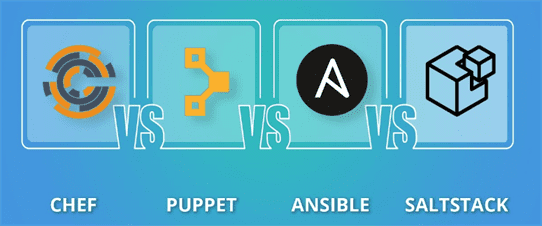Tag: Automation
The Best DevOps Tools for Infrastructure Automation
Today, DevOps teams try to utilize automation as much as possible. This is to cut down on the sheer number of repeatable processes to limit man-hours worked, throttle development efforts, and to reduce the possibility of errors. This is also a business necessity to reduce overhead costs, increase the speed of the CI/CD process and increase customer satisfaction. There are multiple individual areas that need to be automated to have a fully autonomous infrastructure. Luckily, there are various tools we can take advantage of to help us automate our infrastructure and make sure we have well-developed DevOps processes. In this article we will go over the several of the best DevOps tools for our infrastructure systems.
How to Install Docker on CentOS 8
What is Docker?
Before we begin, let's describe what Docker is. Docker is a set of virtualization tools that allows us to create, test, and deploy containerized applications quickly and easily on a dedicated server. It has become very popular and used almost everywhere in our daily lives. Thanks to containerization, we can quickly launch applications on different private cloud hosting platforms utilizing small bundles which contain all the needed packages, libraries and configuration file to run an application. These docker packages communicate via established network channels.
Which one is appropriate for you?

Table of Contents
I. Puppet
II. SaltStack
III. Chef
IV. Ansible
IV. Conclusion
Introduction
Configuring a single server with the required software is a reasonably simple task. However, if numerous servers need to have the same or similar software and configurations installed on them, the process would use numerous man-hours to complete, which would deplete your already strained resources. Without some form of automation, this task can become nearly insurmountable. With this task in mind, new configuration management tools were developed to address the need to deploy new servers with premade configurations and updates, that allowed for a smoother and more manageable automation process. To keep these servers syncing and to manage updates across a broad swath of hosts in a data center or cloud environment, automation tools like Puppet, SaltStack, Chef, and Ansible meet this need.
The Best Free and Paid Web Application Testing Tools
Today, we have multiple tools at our disposal when it comes to web application testing. Sometimes, it can be challenging to make the right decision when it comes to choosing a web application testing tool that fits your specific needs. There are endless factors that come into play when inspecting, verifying, and assessing code as multiple factors come into play that depends on the type of platform being used (e.g. a server cluster or virtual cloud-based system), the programming language being employed as well as the purpose of the web application itself.
How To Install Selenium Tools on Ubuntu 18.04
In our previous article on Selenium, we touched on the tools that the software provides for testing web applications. In this article, we will review the installation of these tools and some basic tests that can be run using the following tools.
What is Selenium?
Introduction
Selenium is a suite of open-source testing tools for web apps that can be utilized across multiple platforms and browsers. Selenium is comprised of four different tools, each providing a different testing capability.
What is Chef?
Chef is a popular, open-source, IaC (Infrastructure as Code) management tool. It eases administration, configuration, and deployment of server resources across a network from a central location.
Install Puppet on Ubuntu 18.04
What is Puppet?
In this tutorial, we will install Puppet on a Ubuntu 18.04 server. Puppet is an open core, server based, task management type of automation software that is primarily used to limit your interactions for many of the mundane, day to day server tasks that used to require personal intervention.
Installing Jenkins on Ubuntu 16.04
What Is Jenkins?
Jenkins is an open source automation server software developed in Java. It allows developers to integrate CI/CD (Continuous Integration/Continuous Delivery) pipelines within their organization that ease and automate workflows. It has an extensive help community, supports over 1000 plugins, allows users the ability to automate almost any task and, it saves significant time that can be better utilized addressing other issues.
The Benefits Of Containerization
Fast, Portable and Secure.
Containerization is a technology that is taking the IT world by storm! It’s no surprise considering the considerable benefits of shifting to a container based deployment.
Our Sales and Support teams are available 24 hours by phone or e-mail to assist.

